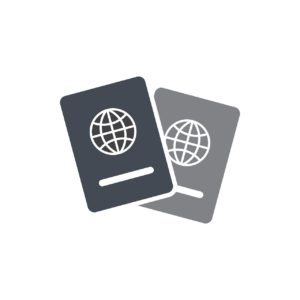Canadian immigration requires you to prove language skills by taking an approved language test. IELTS is one of the most popular and approved language tests.
We will discuss important things about the IELTS exam required for immigrating to Canada. Let’s dive in.
-
Why chose IELTS over other exams?
IELTS is the oldest and most reputed language exam. Exam centers are available in many countries and it’s easy to pick exam dates online. IELTS has seamless integration with Canada express entry system. You don’t have to send any physical test results. Canada’s immigration system automatically picks up and validates your score using test results id.
This helps in checking the eligibility of your language assessment faster and reduces the overall time to process express entry applications.
You can take IELTS exams in two ways, paper-based and computer-based.
I suggest choosing a computer-based exam to improve your chances of getting higher scores.
-
Which IELTS exam to choose for Canada immigration?
You must choose the General Training option for Canadian immigration. IELTS academic option is only used for a study visa.
-
What is the minimum IELTS score required for Canadian immigration?
You need band 7 or higher for basic eligibility of Canada PR.
Canada gives high weightage to language scores. You should try to get the highest score possible. Many folks give the IELTS exam a couple of times to improve their scores.
In summary, getting a good score in the IELTS exam is one of the most important steps for express entry.
-
When should I start preparing for the IELTS exam?
You should prepare at least 2 months before you are planning to create an express entry profile.
IELTS exam dates are subject to availability. Hence it is good to take the exam dates first and then start preparing for the exam. Even if your English communication skills are good, you should study for at least a month to understand the exam format and practice tests.
Listening, speaking and reading parts of exams are relatively easy compared to writing. Hence, it is important to practice writing before taking the exam.
-
Where can I find practice tests?
You can find IELTS general practice tests here.
You should assess your skills using practice tests before taking the dates. It helps in finding weak points and to plan studies accordingly.
-
How much time does IELTS take to process results?
IELTS paper-based : 13- 15 days
IELTS computer-based : 5-7 days
-
Can I appeal my IELTS results?
You can appeal your IELTS results. IELTS will charge you re-evaluation fees.
If your score changes as a result of re-evaluation, re-evaluation fees are refunded.
You can request the re-evaluation within 6 weeks from the date shown on the test report. You can request a re-evaluation of all sections or one section. Re-evaluation fees depend on the test center.
You should check all the fees before choosing a test center.
-
How to prepare for IELTS?
There are many resources already available on the internet. Hence, I will share only personal tips here.
I suggest picking one method and sticking to it. It’s not an academic exam. You can score good marks by putting in smart effort and less work. Even native English speakers forget the basics of English over time. Understanding the technique is important.
You can use the following tips to start preparing for IETLS.
Practice Exams: Take few practice exams to understand your current situation.
Improve weak point first: Start with the section which needs more work. You should note your progress in such sections. IELTS exam score has to be balanced in all sections. You can not get 9 in one section and 6 in another section. That’s why it is important to fix your weak skills first.
Speaking(10-15 minutes): Speak loud, clear, and slow. Talk to your friends daily or record your voice and listen to it. You can also use speech to text feature available online to correct your grammar. You should be able to talk for about 2-3 minutes on any given topic and answer subsequent questions.
Writing (60 minutes): Use a notepad and write 500 words essay on any available topic. Always take 5 minutes to plan the structure and topic before writing. Use a stopwatch to monitor your time. You can use free online tools such as Grammarly to correct basic mistakes.
Reading(60 minutes): Start reading the newspaper articles and academic articles and try to create a summary of them. IELTS may ask you diagram-based questions. You should be able to comprehend directions and diagrams accurately.
Listening: Listening section is common to both general and academic IELTS. IELTS listening exams are tricky. There are many curveballs. You should practice at least 15 practice questions to understand the nitty-gritty of the listening part of the IELTS exam.
I would suggest taking the exam in the morning. In general, we are more productive and focused before noon.
Conclusion:
Canadian immigration gives significant weightage to language assessment and age. If you are under the age of 30, you may get an express entry invitation with an average score. If you are over the age of 30, you should spend extra time preparing for IELTS.
You should practice many types of questions and take an online practice test. Practicing more questions will help you get better scores.










